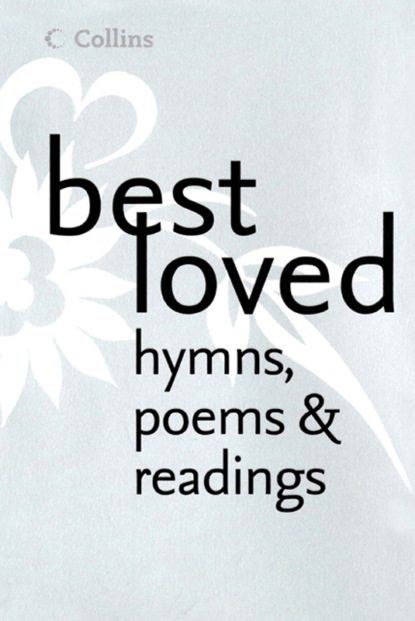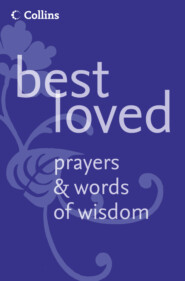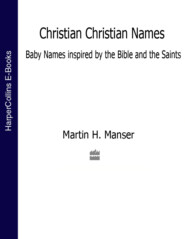По всем вопросам обращайтесь на: info@litportal.ru
(©) 2003-2024.
✖
Best Loved Hymns and Readings
Настройки чтения
Размер шрифта
Высота строк
Поля
I am I, and you are you,
Whatever we were to each other, that we still are.
Call me by my old familiar name,
Speak to me in the easy way which you always used.
Put no difference in your tone,
Wear no forced air of solemnity or sorrow
Laugh as we always laughed at the little jokes we enjoyed
together.
Let my name be ever the household word that it always was,
Let it be spoken without effect,
Without the trace of a shadow on it.
Life means all that it ever meant
It is the same as it ever was.
There is unbroken continuity.
Why should I be out of mind because I am out of sight?
I am waiting for you,
For an interval,
Somewhere very near,
Just around the corner
All is Well.
Henry Scott Holland (1847-1918)
Do not go gentle into that good night (#ulink_87db3428-a677-5743-a8dc-b12c74a8a309)
This fierce protest by Welsh poet Dylan Thomas against placid acceptance of death is often quoted as a spur to those who surrender themselves to complacency and resignation. Thomas himself famously drank himself to death, leaving the world as passionately and recklessly as he had lived.
Do not go gentle into that good night,
Old age should burn and rave at close of day;
Rage, rage against the dying of the light.
Though wise men at their end know dark is right,
Because their words had forked no lightning they
Do not go gentle into that good night.
Good men, the last wave by, crying how bright
Their frail deeds might have danced in a green bay,
Rage, rage against the dying of the light.
Wild men who caught and sang the sun in flight,
And learn, too late, they grieved it on its way,
Do not go gentle into that good night.
Grave men, near death, who see with blinding sight
Blind eyes could blaze like meteors and be gay,
Rage, rage against the dying of the light.
And you, my father, there on the sad height,
Curse, bless, me now with your fierce tears, I pray.
Do not go gentle into that good night.
Rage, rage against the dying of the light.
Dylan Thomas (1914-53)
Do not stand at my grave and weep (#ulink_8fe663bd-81b6-5827-92d3-957d738bc0a9)
Authorship of the following piece, which has become a favourite consolatory reading at funeral services, has been disputed and it has been variously identified as a Native American funeral prayer or an item from a Victorian magazine. It would appear, however, to have been written in 1932 by the US poet Mary Elizabeth Frye. It became more widely known in the latter part of the twentieth century through its exposure after a copy of it, addressed to his parents, was found in the pocket of Steven Cummins, a British soldier killed on active service in Northern Ireland.
Do not stand at my grave and weep;
I am not there. I do not sleep.
I am a thousand winds that blow.
I am the diamond glints on snow.
I am the sunlight on ripened grain.












